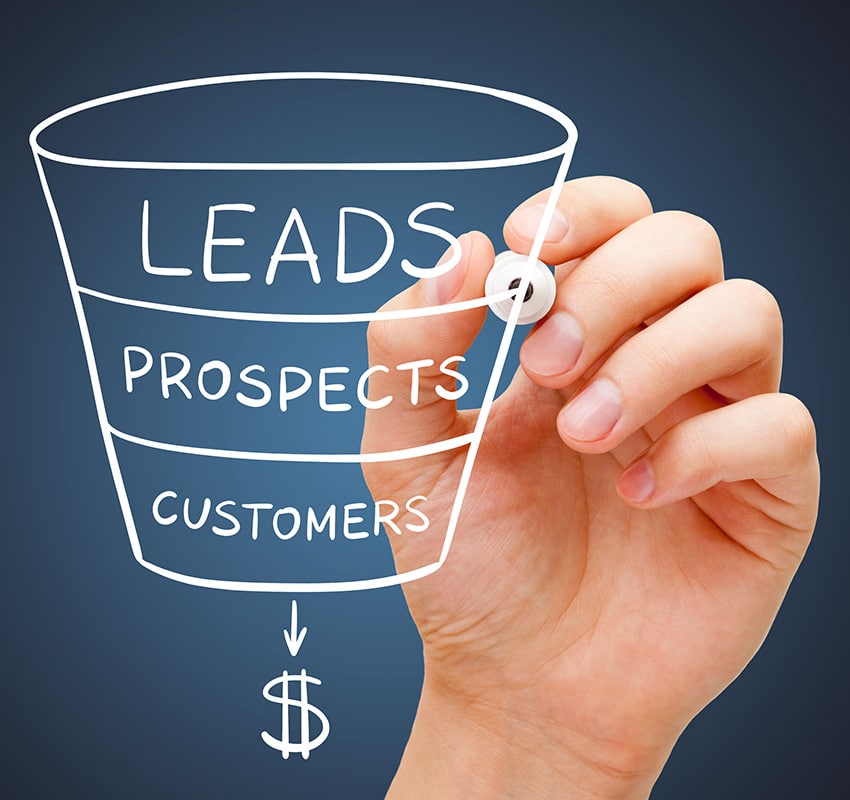How To Build A Full-Funnel Healthcare Marketing Strategy
If you’re aiming to streamline patient acquisition and retention, understanding the healthcare marketing funnel is essential. This targeted guide offers straightforward strategies to effectively nurture leads at every key stage, from raising awareness and building trust to driving conversions and ensuring loyalty. You’ll learn how to tailor these stages to fit your practice’s unique needs and, most importantly, how to execute them to foster sustainable growth.
Key Takeaways
- The healthcare marketing funnel consists of four key stages: Awareness, Consideration, Conversion, and Retention, which have evolved from a linear journey to a dynamic one necessitating an omnichannel approach to engage patients effectively.
- Customization of the healthcare marketing funnel is essential, involving the identification of target audiences and aligning services with patient needs while employing SEO and other digital marketing strategies to enhance visibility and patient engagement.
- Success in healthcare marketing requires continual measurement and optimization using key performance indicators to make data-driven adjustments for improved patient outreach, engagement, and retention.
Understanding the Healthcare Marketing Funnel
The marketing funnel serves as a valuable model depicting the journey from a potential patient’s initial awareness to their engagement with a healthcare provider and decision to receive medical services. This visualization aids in grasping the client acquisition process comprehensively. Specifically tailored for medical practices, the sales funnel maps out phases from initial contact to treatment, each presenting distinct challenges and engagement opportunities.
In recent times, traditional marketing funnel applications in the healthcare industry have undergone a transformation, becoming more fluid than ever before. Stages merge, and the sequence isn’t always conventional, necessitating an integrated multi-channel marketing strategy to meet varied consumer requirements.
Creating an effective marketing funnel involves strategies that not only communicate medical service details but also capture crucial patient information, facilitate interaction, and solicit feedback. This data collection shapes future service offerings while fostering new leads, making strategic funnels essential tools in any healthcare practice’s pursuit of growth and patient care optimization.
Defining the Marketing Funnel
The healthcare marketing funnel illustrates how individuals become aware of a healthcare provider and evolve into devoted patients within that relationship. It comprises four pivotal stages:
- Awareness: Potential patients encounter information about a healthcare provider.
- Consideration: Individuals assess their confidence in the provider’s ability to address their medical needs.
- Conversion: Choosing to pursue treatment from the healthcare institution or professional.
- Retention: Cultivating ongoing loyalty among patients.
Unlike traditional marketing funnels, today’s patient experience often deviates from sequential and unidirectional progression. It has evolved into more fluid movements, with entries occurring at various points along the way. This reflects modern full-funnel marketing strategies focused on continuous engagement, rather than solely achieving initial patronage for health services offered by providers.
Importance of Marketing Funnels in Healthcare
Understanding the intricacies of a patient’s healthcare journey is crucial for devising effective marketing strategies. This understanding empowers healthcare marketers to tailor their campaigns to align with patients’ needs, fears, hopes, and desires, which are essential elements for successful progression through the conversion funnel.
During the consideration stage of content marketing for healthcare, striking a balance is key. It involves generating interest while exercising patience and utilizing analytical insights to resonate effectively with the audience. Content crafted during this phase should offer comprehensive knowledge about medical alternatives, demonstrating value and trustworthiness on behalf of the provider to instill confidence in potential patients.
Healthcare providers who pay close attention to not only meeting but anticipating the informational needs of decision-making individuals will be able to effectively position their services in line with patient needs. This approach enhances overall effectiveness throughout different stages leading up to achieving an optimally functioning conversion funnel.
Customizing the Medical Marketing Funnel for Your Practice
The process of personalizing the marketing funnel is vital to cater to the distinctive paths and interactions that healthcare consumers encounter. By recognizing and responding to these individual experiences, a medical practice can enhance engagements with potential patients throughout all phases of the funnel.
To tailor the funnel effectively, understanding the target audience is paramount. A thorough comprehension of what the audience seeks, enjoys, and struggles with helps construct an accurate profile of an ideal patient. With this insight, targeted marketing campaigns can be crafted to directly address prospective patients’ needs, streamlining their journey through the stages toward becoming actual patients.
Identifying Your Target Audience
In the awareness stage of the healthcare marketing funnel, defining a precise profile for the ideal patient is crucial. Through segmentation and discernment among different patient groups, healthcare providers can develop thorough and potent profiles for their target patients.
Content tailored specifically to these ideal patient profiles significantly amplifies its influence and relevance in health-related communications. Precision targeting enhances messaging resonance with potential patients, elevating conversion chances and nurturing enduring relationships between patients and providers.
Aligning Your Services with Patient Needs
Once you’ve identified your target audience and customized your content accordingly, the next step is aligning your services with patient needs, a crucial aspect of an effective healthcare marketing strategy. SEO practices play a pivotal role in this process by improving site visibility and enhancing user experience, making it easier for patients to find and interact with your healthcare services.
User satisfaction is paramount in the digital age, with factors like page speed and mobile responsiveness significantly impacting user experience. Patients value these aspects when accessing healthcare information online, making them crucial for aligning healthcare services with patient preferences.
Creating Engaging Content Across the Funnel Stages
Offering pertinent and beneficial content at each stage of the funnel is vital for assisting consumers as they navigate their healthcare choices. Content that educate potential patients about their health matters aids from the initial awareness phase to the decision-making point within the healthcare journey.
Awareness Stage: Educating Potential Patients
During this stage, the goal is to capture the attention of potential patients and introduce them to your healthcare services. Various content types such as blog posts, checklists, and infographics cater to different informational needs and search queries, helping potential patients identify their healthcare needs and decisions. Balancing creative content delivery with adherence to healthcare regulations ensures potential patients receive accurate and reliable health information.
Consideration Stage: Building Trust and Interest
Potential patients transition from being aware of healthcare services to actively assessing them during this stage. They seek comprehensive information demonstrating how your offerings align with their health requirements. Educational materials such as in-depth explanations of treatments, patient testimonials, and case studies can highlight the proficiency and reliability of your practice while educating those considering your healthcare provider.
Conversion Stage: Encouraging Action
This crucial stage encourages potential patients to take action, such as arranging an appointment or signing up for a newsletter. Content at this juncture should steer prospects toward these actions with well-defined calls to action. Showcasing actual patient success stories, testimonials, and exclusive deals persuades potential patients to progress further. Careful control of email campaign timing and cadence keeps patients engaged without overwhelming them, building fidelity that leads to successful conversion.
Leveraging Digital Channels for Patient Outreach
In today’s digital era, healthcare providers must effectively utilize digital platforms to engage with patients. As contemporary healthcare consumers have considerable choices and the ability to interact digitally, healthcare strategies must evolve to meet these changes. This evolution includes not only connecting with patients across multiple digital channels but also maintaining strict compliance with regulatory standards like HIPAA, safeguarding patient data privacy, and ensuring legal compliance.
Search Engine Optimization (SEO)
Healthcare marketing greatly benefits from utilizing SEO within digital strategies. By improving their website’s online visibility, healthcare providers better connect with potential patients who use search engines for health-related information. Nearly half of all internet users (47%) look up health professional details online.
Employing SEO tactics positions healthcare providers to secure higher placements in enhanced search results like featured snippets, knowledge panels, and local packs, boosting the chances of drawing patients to their services.
Social Media Marketing
Social media platforms provide a robust avenue for healthcare providers to connect with prospective patients. Research shows that while 90% of doctors engage on social media for personal purposes, 65% also utilize these networks professionally. This widespread utilization underscores social media’s valuable role in healthcare marketing.
Platforms can serve various functions for healthcare professionals including:
- Building professional connections
- Continuing education
- Public interaction and engagement
- Disseminating medical research findings
- Marketing their services
- Advocating for health issues
When actively involved on these platforms, healthcare providers can enhance their reputation, thereby nurturing trust and establishing credibility with future patients.
Email Marketing
Email marketing is a powerful instrument for transforming leads into enduring patient relationships. Providers deliver pertinent information directly to potential patients’ inboxes through customized email initiatives, ranging from informative materials to reminders and exclusive promotions. Paired with digital resources like patient portals and mobile applications, email marketing enhances the patient experience, boosting engagement and loyalty.
Measuring Success and Optimizing Your Healthcare Marketing Funnel
Crafting a healthcare marketing funnel is just the beginning. Its effectiveness must be continually evaluated and refined using data-driven insights. Establish precise goals and determine key performance indicators to understand the success of marketing strategies.
Analyzing website traffic patterns and user interaction sheds light on digital marketing initiatives performance. Tracking online reputation and patient feedback is imperative for understanding the practice’s online image, enabling enhancements in patient experiences.
Key Performance Indicators (KPIs)
Quantitative metrics, known as Key Performance Indicators (KPIs), are essential for gauging the success of your digital marketing efforts in healthcare. Tracking KPIs such as conversion rates, email campaign efficacy, and social media engagement levels provides critical insights into your marketing strategy’s performance.
Conversion Rates
Conversion rates measure how often prospects complete desired actions, such as setting appointments or signing up for newsletters. They offer a clear indication of the effectiveness of your calls to action and reflect overall strategy success in converting prospects.
Social Media Engagement
Analyzing data from social media initiatives, including follower growth rate, likes, comments, shares, and results from paid advertising, provides a valuable perspective on content resonance with audiences and interaction intensity.
Analyzing and Adjusting Your Strategy
After tracking KPIs and collecting data, the next step involves scrutinizing this information to refine your marketing approach. Utilizing data analytics is critical for identifying successful strategies in driving conversions and optimizing marketing resource allocation.
Implementing A/B testing along with multivariate tests on your website or within your healthcare marketing materials can pinpoint elements that bolster conversion rates. Consistent SWOT analyses and audits of content enable you to discover areas lacking information while underscoring chances to augment your healthcare marketing strategies.
Summary
To sum up, the marketing funnel in healthcare is an essential tool for navigating the digital landscape. From understanding its nuances to tailoring it for your practice, generating compelling content, leveraging digital avenues to connect with patients, and tracking progress while fine-tuning approaches at each stage, are vital. A well-designed marketing funnel, when properly executed, can significantly enhance a healthcare provider’s competence in attracting, engaging, and retaining patients, ultimately leading to a flourishing healthcare practice.









